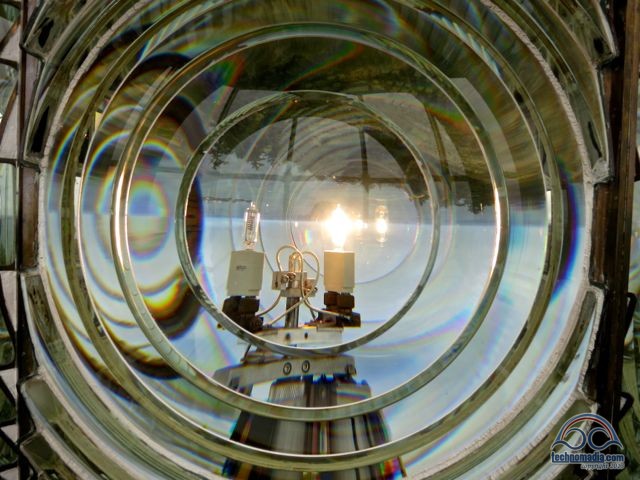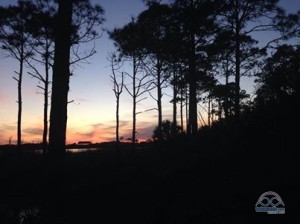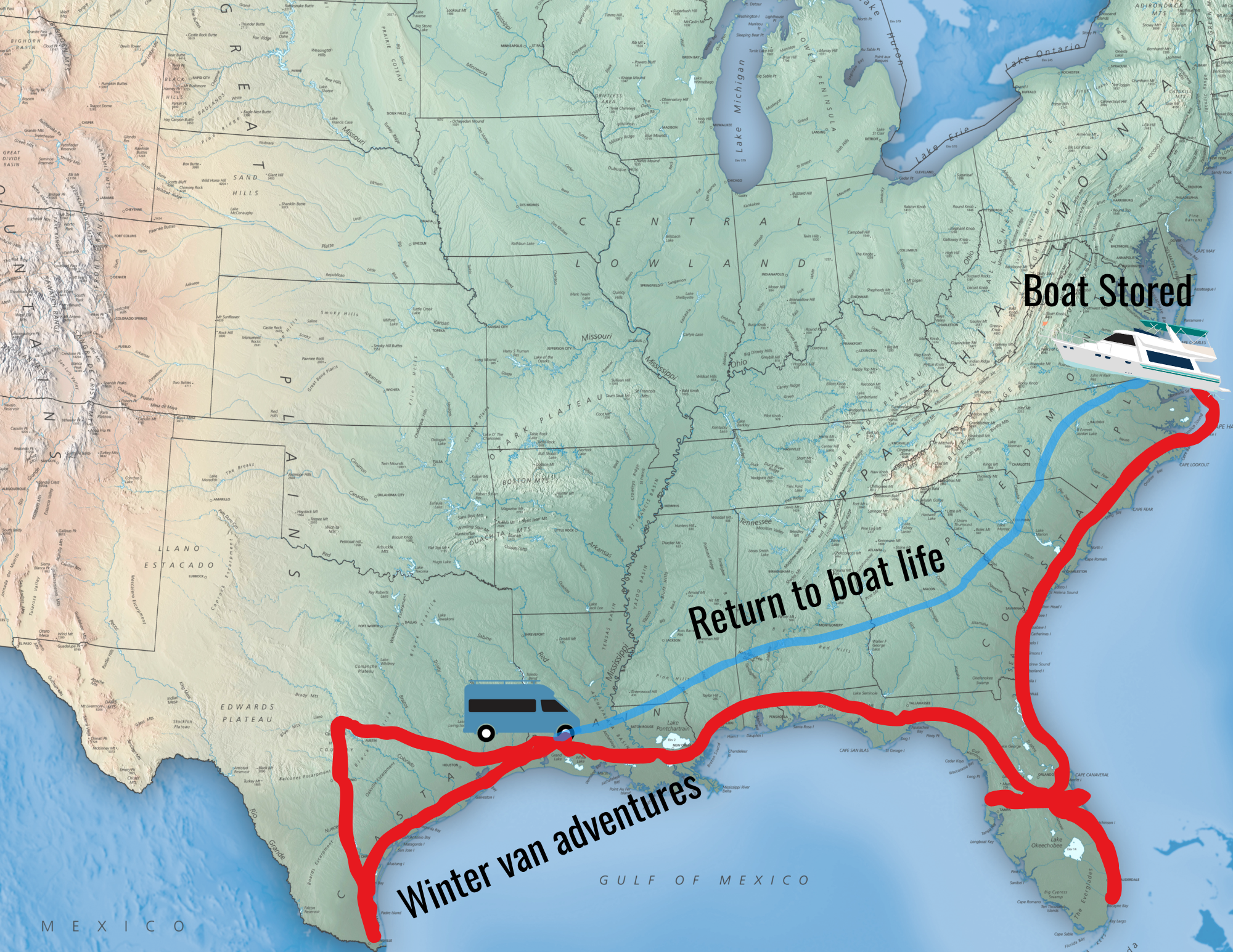

Whew. After several long driving days in a row, we finally crossed into Florida last night. It’s been a busy week with lots of miles under our tires. And we look forward to catching up on a lot of stuff over the coming days before we make our final push to our winter spot in Cedar Key.
I’ve not had time or energy to put thought into a helpful blog post this week.
So, I’m cheating a bit here and instead going to link to a whole bunch of past helpful content that you might not have caught before, or forgotten about.
It’s kind of a guiding light to our blog, I suppose.
More About Us
- Our Start Here Page – The short story of who we are, and basically the rest of this post.
- Our Full(er) Story — How we met, who we are, our various forms of travel thus far and how we earn our income as we roam.
- Our Home on Wheels – A tour of our current nomadic home — an awesome 1961 vintage bus. Also includes links to our bus project logs.
- Our Mobile Gear – A listing of some of the gear that enhances our mobility — from tech, to toys to practical household items.
- Our Monthly Cost Log — We’ve shared our travel cost log online for years, and you’re welcome to view it.
- Our Resources Page – Listing of all our ‘for sale’ items – eBooks, apps, consulting sessions and calendars.
Life on the Road
Curious about hitting the road yourself? In addition to writing about our own travel adventures, we also share a lot of practical and thinky’ content about how we’ve made it work:
 No Excuses: Go Nomadic
No Excuses: Go Nomadic
This is our series of articles about the logistical aspects of living a nomadic life. We offer it as a free blog series, or as a convenient eBook on a pay as you wish’ basis for those who wish to contribute to the costs of maintaining this site and help keep us inspired to keep sharing. Enjoy!
Some of the topics in the series:
 Ramblings: Tales from Nomads
Ramblings: Tales from Nomads
Our video interview series – we love meeting up with our nomadic friends in our travels, so we decided to start filming interviews with them so you can meet them too. Our way is not the only way.
We now have a collection of over 20 (!!) interviews produced, and try to release a new one monthly. Check this series out, there’s some serious inspiration here from a wide variety of folks living on the road and making it happen.
Want to meet more fellow working on the road nomads? Here’s our extensive listing to blogs of Fellow Younger’ RVing Nomads.
In addition to the interview series, we’ve also been hosting monthly(ish) live video streams, and have them all archived here.
Tech & Mobile Internet Stuff
 We depend on mobile internet for our livelihood, and have tried a lot of options. We tried to write one concise blog post about this topic, but wow — we had a lot to say. So it became a book – The Mobile Internet Handbook. Everything we’ve learned about keeping connected while on the road — cellular data, WiFi, satellite, setting expectations and more.
We depend on mobile internet for our livelihood, and have tried a lot of options. We tried to write one concise blog post about this topic, but wow — we had a lot to say. So it became a book – The Mobile Internet Handbook. Everything we’ve learned about keeping connected while on the road — cellular data, WiFi, satellite, setting expectations and more.
Our articles specific to mobile technology and connectivity, including:
We also have developed two mobile apps to specifically address issues in our own RVing lifestyle:

 Coverage? – Overlays the major cellular carriers coverage maps, so we always know what to expect for keeping online.
Coverage? – Overlays the major cellular carriers coverage maps, so we always know what to expect for keeping online.
State Lines – Summarizes over 50 states laws and regulations that affect us travelers as we cross state lines.
Nomadic Philosophy & Logistics
Our thinky’ posts about the nomadic lifestyle in one place — including:
RVing Stuff
Our articles specific to RVing, including:
-
- Case Studies of Full Time RVing Workspaces & Offices
- Gift Giving Guide for Full-Time RVers
- Healthcare on the Road (Updated for the Affordable Care Act!)
- Tips and Tricks for a Versatile RVing Wardrobe
- Our 10 Most Surprising Things about Full Time RVing
- Our House is in the Shop (when your RV breaks down)
- Realities of Living & Traveling in a RV Full Time (video)
- Setting up our Domicile in Florida (Why, how and how much)
- Full Timers Perspective on Fuel Costs
- Selecting an RV for Full Timing
Given the number of questions we get on a wide variety of topics we’ve written about before, I’m hoping some of this is useful reminders.
I sometimes forget just how much content we’ve written here over the past 7 years. Wow.
If you’ve appreciated all we’ve shared over the years, we always greatly appreciate hearing it!
Please don’t ever hesitate to leave a comment or show your appreciation in other ways. It really does help keep us inspired to keep sharing.


I have not seen any specific rule of thumb for nomads, but the rule of thumb financial advisors recommend is 6 to 12 months of income in cash or liquid investments for non-nomads — something very, very few folks actually do. I would personally add the cost of expected maintainance (tires, filters & such) for that period plus a “major” breakdowm reserve which will depend on your chosen vehicle.
This is an ideal for many (most) folks but when you are nomadic (a) cash and investments take the place of houses and other physical things you are no longer carrying on your back, so to speak, and (b) you have to allow for the fact that your “support” systems are dispersed geographically rather than being in known locations relatively close at hand.
The biggest factors, paraphrasing what Chris said, are your attitudes about luck, pain & just plain old digging in when problems arise.
The big difference for sucessful nomads is thinking — thinking ahead, thing things through, thinking without fooling yourself.
e3
Agree with Scott, also you need to be able to cover unexpected things like 1200 worth of tires on the side of 295 in Maine or the 346.00 antenna you will rip off the roof of your rig because you don’t have a checklist yet. It’s going to happen. You need to be able to absorb some unexpected without it putting you out of business. It’s really no different than owning a house in that regard.
Bryan,
This is what I was getting at. To replace a trans. or motor could cost big bucks, as chris knows, 20k later. But I guess Good Sam ins. would pay for some.
But if you had health problems and you had to put your rig in storage for a month or so, your going to need some cash in the bank to pay for that. So what I was asking was, What’s a good amount to have in savings. 20k,30k, ??
Scott
Scott.. it honestly really depends. In our case, yes we had an engine rebuild – but we knew that was a likelihood when we bought a 50 years old bus for $8k. We just banked the funds then so it wouldn’t be an obstacle financially when (not if) it happened.
If you’re buying a newer unit and able to get a usable warranty, then that’s not as much of a concern.
Life has obstacles and unexpected financial hiccups – what’s your personal comfort factor with dealing with those? How do you handle medical issues now? How do you handle house repairs, break-downs, desires to take time off, urgent travel to visit a loved one in need?
We personally have moderate savings, as we’re actively saving for retirement and big major stuff (like if we ever wanted to buy fixed property somewhere). We also like being completely financially independent, staying completely debt free and be able to be choosy about the jobs we take on. For the stage of life we’re personally in, $20-30k would not feel abundant enough regardless of our living situation – but to others, that’s a huge amount of cash.
Scott, What each person needs will vary, there are people out there that are making it on one or two thousand dollars or less a month, and there are people out there that can’t make it on six thousand dollars a month.
Thanks,
This is great… I’m still reading.
This really helps me. How much money should you have in the bank before a person starts out? ( round about )
Scott
Scott – how much money you need saved up is really dependent on your personal comfort level and situation. Some folks want a nice cushion, and some folks are comfortable figuring things out as they go.
Choosing a RVing life is not all that dissimilar from choosing any other lodging option. How much money should someone buying a house have in the bank first? Both a RV and a house are going to have problems along the line that need fixing. Your mode of transportation is still going to break down. You’re still going to have expenses for food, medical, insurance, emergencies, travel to see family, etc.
Adding on to what Cherie and Ed have already said…
It is a good idea to have “resources” banked up before setting out so that you have some reserves to rely on for if/when you encounter bumps in the road.
For some people, that is money in the bank.
For others, it is a line of credit (and confidence in their ability to pay it off in the future).
For others, it is personal resourcefulness and skills.
And some people just seem to have magical amounts of luck that they can tap into on demand.
And for most – it is a very personal balance of all of the above. There is no single simple rule of thumb that works for everyone.
– Chris
It’s a clip show! 😉